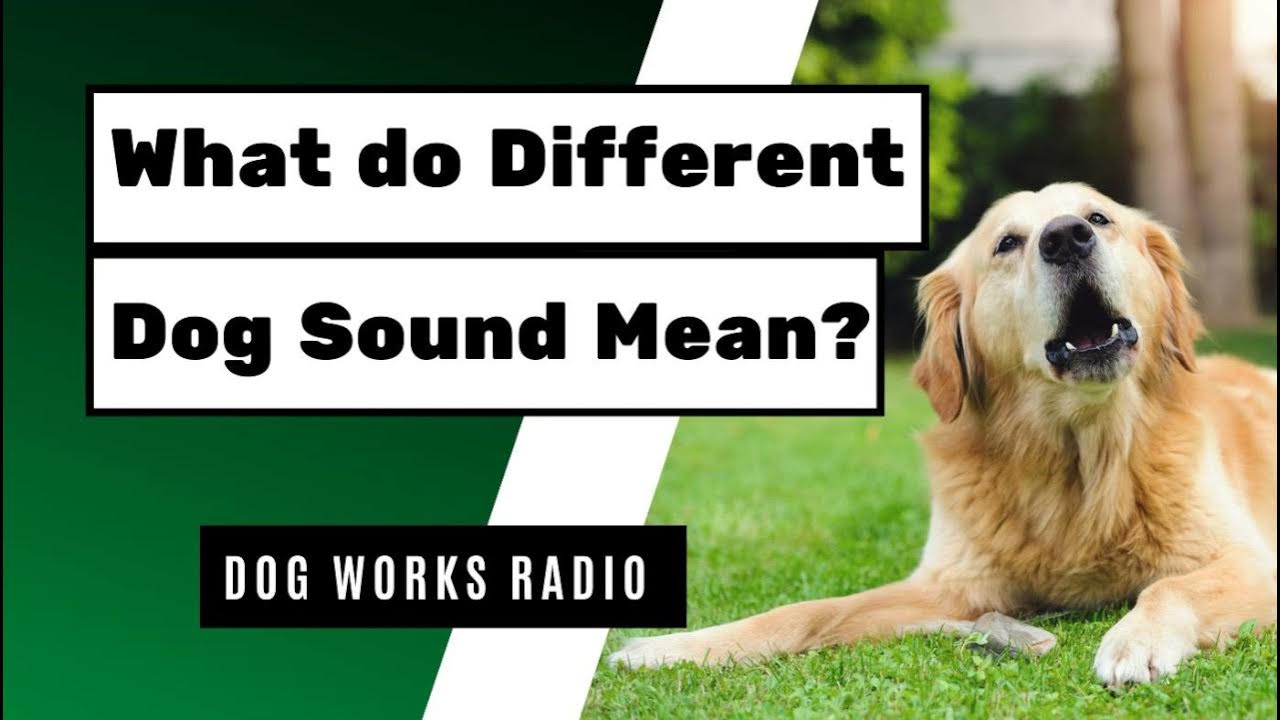Key Takeaways:
- Howling at sirens is an instinctive behavior for dogs.
- Dogs may howl at sirens due to their keen hearing and sensitivity to high-pitched sounds.
- Howling at sirens can be a form of communication or a response to perceived danger.
- Some dogs may howl at sirens as a way to join in with the noise or mimic the sound.
- Training and socialization can help reduce excessive howling at sirens in dogs.
Introduction:
Have you ever wondered why dogs howl at sirens? It's a curious behavior that has puzzled dog owners and researchers alike. But understanding the reasons behind this howling can provide valuable insights into the minds of our furry friends. Not only will it deepen our bond with them, but it may also help us better care for their emotional well-being. So, let's embark on this fascinating journey together and uncover the secrets behind why dogs can't resist joining in when they hear those blaring sirens. Get ready to be amazed by the hidden world of canine communication!
Why do dogs howl at sirens?
Dogs have a keen sense of hearing that is much more powerful than humans. When they hear a loud noise like a siren, it can be very startling to them. The high-pitched sound of a siren can trigger a dog's natural instinct to communicate with other dogs. Howling is one way that dogs communicate over long distances, so when they hear a siren, they may feel the need to join in and howl along.
In addition to their instinctual response, dogs may also howl at sirens because they are trying to alert their human companions. Dogs are known for their loyalty and protective nature, so when they hear a loud noise like a siren, they may interpret it as a potential threat and feel the need to warn their family members.
The Science Behind Dogs' Hearing
Dogs have an incredible sense of hearing that allows them to detect sounds at much higher frequencies than humans. While humans can typically hear sounds up to around 20,000 hertz (Hz), dogs can hear frequencies up to 65,000 Hz or even higher.
How Dogs' Hearing Affects Their Reaction to Sirens
The high frequency of sirens falls within the range that dogs can hear, making it particularly attention-grabbing for them. The loudness of the siren combined with its piercing tone can be overwhelming for dogs with sensitive hearing. This can trigger their natural response to howl as a way of communicating or seeking comfort.
It's important for dog owners to understand that their pets' reaction to sirens is not something they can control or stop completely. It is simply an instinctual behavior triggered by the sound and frequency of the siren.
What makes some dogs start howling when they hear a siren?
The instinctual response of dogs
When a dog hears a siren, it triggers their natural instinct to communicate and join in the chorus. Dogs are pack animals, and howling is one way they communicate with each other over long distances. The sound of a siren can be similar to the howls of other dogs, which prompts them to respond by joining in. It's their way of saying, "I'm here too!"
The frequency and pitch of sirens
Sirens emit high-pitched sounds that can be uncomfortable for dogs with sensitive hearing. Dogs have a wider range of hearing than humans, and they can detect frequencies that we cannot. The loud and piercing nature of sirens can cause discomfort or even pain for some dogs, leading them to express their discomfort through howling.
How does a dog's hearing affect their reaction to sirens?
Dogs' superior hearing abilities
Dogs have an incredible sense of hearing that surpasses our own capabilities. They can detect sounds at much lower volumes and higher frequencies than humans. This heightened sense of hearing allows them to pick up on distant sounds like sirens before we even notice them. So when a siren blares nearby, it may seem sudden to us, but for dogs, it's been building up in their ears for quite some time.
The impact of loud noises on dogs
Loud noises like sirens can be overwhelming for dogs due to their acute hearing abilities. The sudden blast of sound can startle them and trigger anxiety or fear responses. Some dogs may interpret the noise as a threat or danger, leading them to react by howling as a form of self-expression or an attempt to alert others in their pack.
Understanding why dogs feel the need to respond to sirens with howling
Howling as a social behavior
Howling is deeply ingrained in a dog's DNA and has been a part of their social communication for centuries. When dogs hear a siren, they perceive it as another dog or pack member calling out. By joining in with their own howls, they are participating in this social behavior and reinforcing their bond with their human family or other dogs nearby.
The influence of environmental factors
The environment in which a dog lives can also play a role in their response to sirens. If a dog is regularly exposed to sirens or lives in an area with frequent emergency vehicle activity, they may become desensitized over time. On the other hand, if a dog rarely encounters sirens, the novelty of the sound can trigger curiosity and excitement, leading them to respond with howling.
Other sounds that can make dogs howl, apart from sirens
Musical instruments and singing
Dogs have sensitive ears that can pick up on various sounds beyond just sirens. Musical instruments like saxophones or harmonicas can produce tones similar to howling, which may prompt dogs to join in. Similarly, when humans sing high-pitched songs or even imitate howling themselves, it can trigger a dog's instinctual response and result in them joining the "song."
Fireworks and thunderstorms
Loud booming sounds like fireworks or thunderstorms can startle dogs and elicit howling as well. The sudden bursts of noise coupled with the vibrations from these events can create anxiety or fear responses in dogs. Howling becomes their way of expressing discomfort or seeking reassurance from their owners during these unsettling moments.
Which dog breeds are more likely to howl at sirens?
Siberian Huskies and Alaskan Malamutes
Certain dog breeds have a higher tendency to howl in response to sirens due to their genetic predispositions. Siberian Huskies and Alaskan Malamutes, for example, have strong pack instincts and are known for their vocal nature. These breeds were historically bred for sledding and working together, so their inclination to howl is deeply rooted in their heritage.
Beagles and Bloodhounds
Beagles and Bloodhounds are scent hounds known for their exceptional tracking abilities. Their heightened sense of smell is accompanied by a propensity for vocalization, including howling. When these breeds hear a siren, they may feel compelled to respond due to their instinctual need to communicate or alert others.
Helping calm down a howling dog during a siren incident
Create a safe space
During a siren incident, it's important to provide your dog with a designated safe space where they can retreat and feel secure. This could be a cozy corner with their favorite blanket or a crate covered with a calming sheet. Having this safe haven helps them cope with the anxiety-inducing noise by giving them a sense of control over their environment.
Use calming techniques
Implementing calming techniques can help soothe your howling dog during a siren incident. Playing soft classical music or using white noise machines can help drown out the sound of the sirens and create a more peaceful atmosphere. Additionally, using pheromone diffusers or natural remedies like lavender oil can have relaxing effects on dogs, promoting calmness in stressful situations.
Remember, each dog is unique, so it's essential to observe your pet's behavior and consult with a veterinarian or professional dog trainer for personalized advice on managing their response to sirens.
In conclusion, dogs howl at sirens because they are responding to the loud and high-pitched sound. It is their natural instinct to communicate and join in with the noise they hear.
Are dogs sad when they howl at sirens?
If you have ever wondered why dogs howl at sirens, now you have the answer. They do it to indicate their location, not because it causes them pain. However, owners may have a different perspective on the matter.
Do dogs ears hurt with sirens?
No, the sound of sirens does not cause any harm to a dog's ears. Generally, dogs are not affected by sirens and there is no need to be concerned. If your dog is howling in response to sirens, it is likely due to other reasons mentioned earlier. However, if your dog shows signs of discomfort or fear such as wincing or cowering, it is recommended to consult a veterinarian.
What does it mean when a dog howls?
Dogs howl for various reasons, such as seeking attention, communicating with other dogs, or announcing their presence. Howling is a natural instinct and can be either normal or a response to an underlying issue. Some dogs may howl in response to high-pitched sounds like sirens or musical instruments.
What dog breeds howl the most?
According to Dogster, while all dogs have the ability to howl, certain breeds are more prone to doing so. These breeds include hounds like dachshunds, beagles, basset hounds, and bloodhounds, as well as huskies, Alaskan malamutes, and American Eskimo dogs.
Do dogs howl because sirens hurt their ears?
As Dr. Laura Hungerford, a veterinarian and research scientist at the University of Nebraska explains, dogs don't always howl in response to a sound because it hurts their ears. They may associate the sound with certain events or have learned that if they howl, the noise goes away.
Does howling hurt a dog's throat?
Yes, it is possible for a dog to develop a sore throat and vocal cord damage from excessive barking. Furthermore, prolonged barking can cause significant stress and trigger various behavioral problems in dogs. Now, let's explore the reasons behind dogs barking for extended periods and the consequences of this behavior.
















